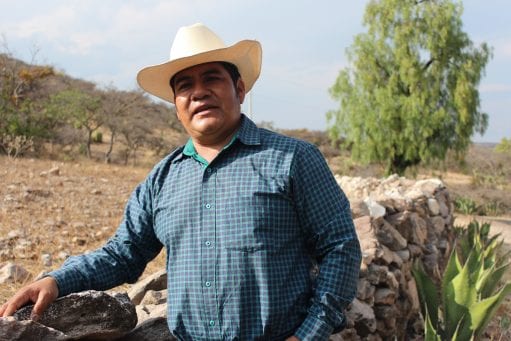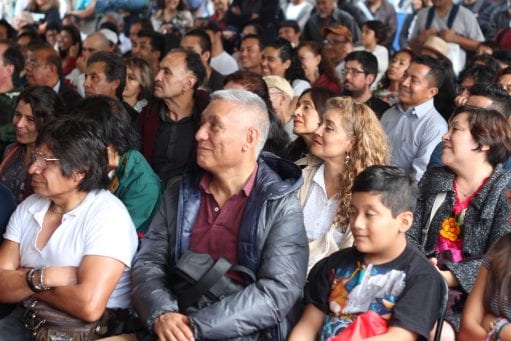The knot at the end of the rope: Violence, hope, and transformation in El Salvador and Mexico
By Ariana Markowitz, on 11 December 2018
I spent an afternoon in August with a group of young men in a skate park on the outskirts of San Salvador, El Salvador. The park was part of a larger recreational complex and more people drifted in as the hours passed. The day was stifling and even if shade in the park was limited, at least sometimes there was a breeze in the air, unlike inside the low-income housing blocks that ringed the park and the shacks that climbed up the surrounding streets, splintering into a labyrinth of dead-end alleys.
The young men in the skate park told me story after story about police and gang brutality. At one point I asked them to draw a picture of a place or a situation in which they felt unsafe, uncomfortable, or anxious and another place or situation where they felt the opposite. One person stared at a blank piece of paper for 10 minutes, unable to think of any time or place where he had ever felt safe. Another drew an imaginary safe place where there were no abuses of power, people interacted as equals, homes were dignified, and greenery was abundant. After leaving the park later that day, a taxi driver told me about almost joining a gang some 15 years earlier, but changing his mind at the last minute based on the somber regrets of someone who had decided to go through with it. Later that night on my way home, I saw a body on the street. No one stopped and when I slowed down to get a closer look, my car was almost hit from behind.

A drawing produced by one of the young men in the skate park. In his words, “What makes me feel unsafe, uncomfortable, or anxious is the police, corruption, murders, and interpersonal violence.”
This situation is part of what is driving Central Americans, especially from the so-called ‘Northern Triangle’ countries of El Salvador, Honduras, and Guatemala, to flee, seeking a better life or, in some cases, a life at all in the United States. More and more the migrants and displaced people are traveling in mass because most of their journey is through Mexico and the Mexican state has repeatedly demonstrated its unwillingness or inability to protect asylum seekers’ human rights, leaving them vulnerable to opportunistic people and cartel violence while they travel, often with babies and children in tow. The poor treatment of migrants and displaced people is an extension of the Mexican state’s similar unwillingness or inability to protect Mexican citizens’ human rights. Nearly 250,000 Mexicans have been killed in the last 10 years and there are more disappearances now in Mexico than there were under the dictatorships in South America, including the still unresolved case of 43 students disappearing in 2014, apparently at the hands of state security agents with assistance from organized criminal groups under the protection of military forces. Just like I saw in El Salvador, poverty in Mexico is both a driver and a result of violence, and decades of repeated abuses have corroded Mexicans’ confidence in each other and in their government. Several years ago when I was documenting police reform in Mexico, I was struck by how government insiders and partners recalled processes that were difficult but ultimately successful while outsiders saw failures and suspected conspiracies.
Amidst so much darkness, DPU’s Étienne von Bertrab has opted to look for light. A few years ago he began developing what is now Albora, an initiative that traces Mexico’s “geographies of hope” through identifying, studying, documenting, and showcasing transformative projects throughout the country. Spotlighting this work demonstrates the that there are other ways to develop, progress, and grow, ones in which no one mistakes violence for a solution, where access to water and other natural resources is universal, where citizens are informed and engaged, and where everyone strives for the greater good.

Luis Domínguez, an engineer working for Agua para Siempre, has dedicated decades of his life to assisting communities fight soil erosion and restore river basins in the impoverished Mixteca region.
One such project is Agua para Siempre (‘water forever’), established 30 years ago by a then young couple, who decided that they would defend and support their poorest compatriots. They landed in the Sierra Mixteca in the Mexican state of Puebla, an arid and fast-eroding area that had been and continued to be hollowed out because of migration to large Mexican cities and the United States. With time, the couple understood that access to water was fundamental to addressing poverty and migration, so they began to study pre-Hispanic methods for soil retention and cultivation and advocate for their re-adoption in surrounding communities. Today, their organization, Alternativas y Procesos de Participación Social, AC (‘alternatives and social participation processes’), has 300 people and thousands of local partners who are seeing the fruits of their sustained efforts. Communities are beginning to have access to water all year for small-scale cultivation, animal husbandry, and human consumption, and hundreds of small cooperatives have begun to produce amaranth, a pre-Columbian pseudo-grain that, like quinoa, is high in protein, vitamins, and minerals. Reversing previous trends, migration is falling, as is child malnutrition, thanks to the inclusion of amaranth in local diets.
The search for transformative initiatives also brought the Albora team, which includes five DPU alumni, to Mexico City where a Mexican historian and novelist, his family, and a dozen others have formed the Brigada para Leer en Libertad (‘brigade to read in freedom’). The brigade has cultivated new readers through facilitating horizontal and informal access to authors, expanding the availability of books, and creating free places to read. So far, they have gifted or sold more than a million books at an affordable price to girls, boys, women, and men in a country where the high price of books makes bookstores elitist and inaccessible and public libraries are few. To that end, the brigade also establishes libraries, with a recent campaign resulting in the donation of nearly 70,000 books. These books have become the basis for carefully curated collections in formerly empty libraries in the southern Mexican state of Chiapas. The brigade promotes reading for pleasure but also as a political act—an essential step towards the full exercise of conscious citizenship.

Free public gatherings are central to the Brigada’s book fairs in which women, men and children engage in dialogues with authors about their work and about the Mexican political conjuncture and ways out of the crises.
These projects and others are harnessing the power of hope to fuel alternative visions of their society. They demonstrate the fundamental importance of restoring and cultivating hope, necessary for active citizenship, and united, powerful communities, not just in Mexico or El Salvador but everywhere where injustice and inequality construct blocks for us to stumble over. The projects challenge us to look beyond our cynicism and apathy.
Before I left the skate park in August, one young man told me that he was glad I had come. “Most people don’t come looking for us, and the people who do don’t listen to what we have to say,” he said. “I hope you’ve been able to hear us and that the stories of our lives help you do your work.”
To learn more about Albora and contribute to its crowdfunding campaign, active until Tuesday, 18 December and only funded if it reaches 100% of its goal, go here.
Ariana Markowitz is a PhD student at DPU researching how fear and trauma manifest and become defining characteristics of urban landscapes. Taking cues from this damage, especially in marginalized communities, she looks for alternative ways of repairing frayed social fabric and healing.
 Close
Close

